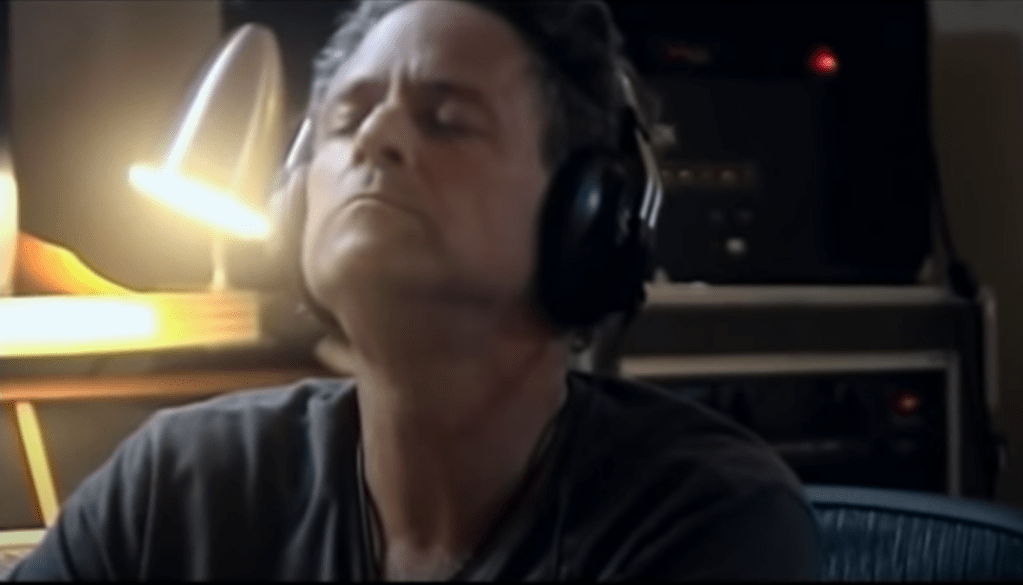

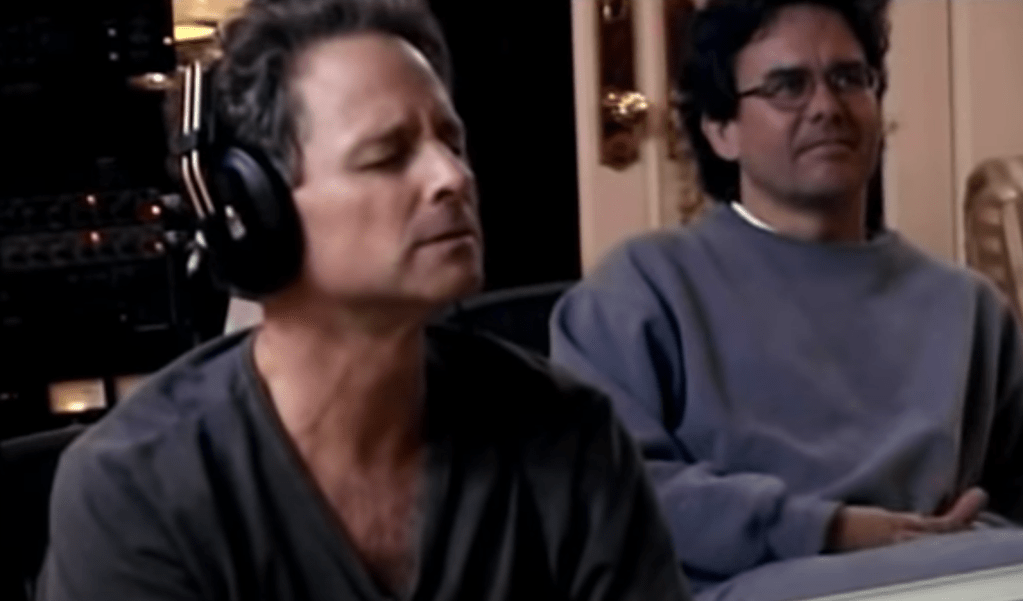
we’re on an indefinite hiatus, sorry. u can listen to past episodes here

Back at it again at WPKN.
Ya girls stopped by Chris Frantz’s show to talk about Stevie Nicks’s induction into the Rock and Roll Hall of Fame, what we’re grooving to right now, and more. If you missed it live, you can listen to the archive of the episode here.

Bowie. Bolan. The Dolls. These are the names that we have hallowed through the decades as bastions of glam rock, the genre that defined the early ‘70s urban rock scene. Simultaneously swirling around the glam galaxy was a soft-spoken, fair-featured piano prodigy who called himself Jobriath, and though he is less featured in the annals of music history, his influence is no less felt by generations of flamboyant, theatrical rock performers who came after him.
Often cited as the first openly gay rock star, Jobriath rocketed from musical theatre actor and folk songwriter to full-on glam star in seemingly no time at all, thanks to aggressive marketing strategies from his Svengali-like manager, Jerry Brandt. Jobriath burned hot and bright for a few years, but his star fell just as quickly as it rose, and he spent the remainder of his days living out of the pyramid apartment on the roof of the Chelsea Hotel before his premature death in 1983.
In this episode, we unpack the many ways Jobriath’s story — though shorter than his glam peers — has volumes to teaches us about the genre, changing social norms between the last decades of the 20th century and now, gender and sexuality, and why in the hell someone would even want to be famous in the first place.
Listen to Jobriath: iTunes | Spotify
Favorite track(s): I’m A Man (Carly) | I’m A Man (Carrie)
Least favorite track: Space Clown (Carly) | Blow Away (Carrie)
Album credits:
we couldn’t find anything further detailed than “performer” for many of the talent credited
Further watching:
Jobriath A.D. – Glam Rock’s Lost God trailer | 2012
“I’m A Man” live on The Midnight Special | 1974
“Rock of Ages” live on The Midnight Special | 1974
Further reading:
Music’s Unsung LGBTQ Heroes | Rolling Stone (June 2018)
The Tragedy of Jobriath, the World’s First Openly Gay Rock Star | Gay Times (May 2018)
The Unbelievably True Story of Jobriath, Music’s First Openly Gay Rock Star | Highsnobiety (April 2017)
The Rise and Fall of Jobriath, Pop’s First Openly Gay Star | AnOther (January 2017)
A Life Story of Glitter and Tragedy | The New York Times (May 2014)
Cole Berlin: An Elegy | The Spectacled Avenger (July 2012)
Jobriath: The Man Who Fell To Earth | The Guardian (March 2012)
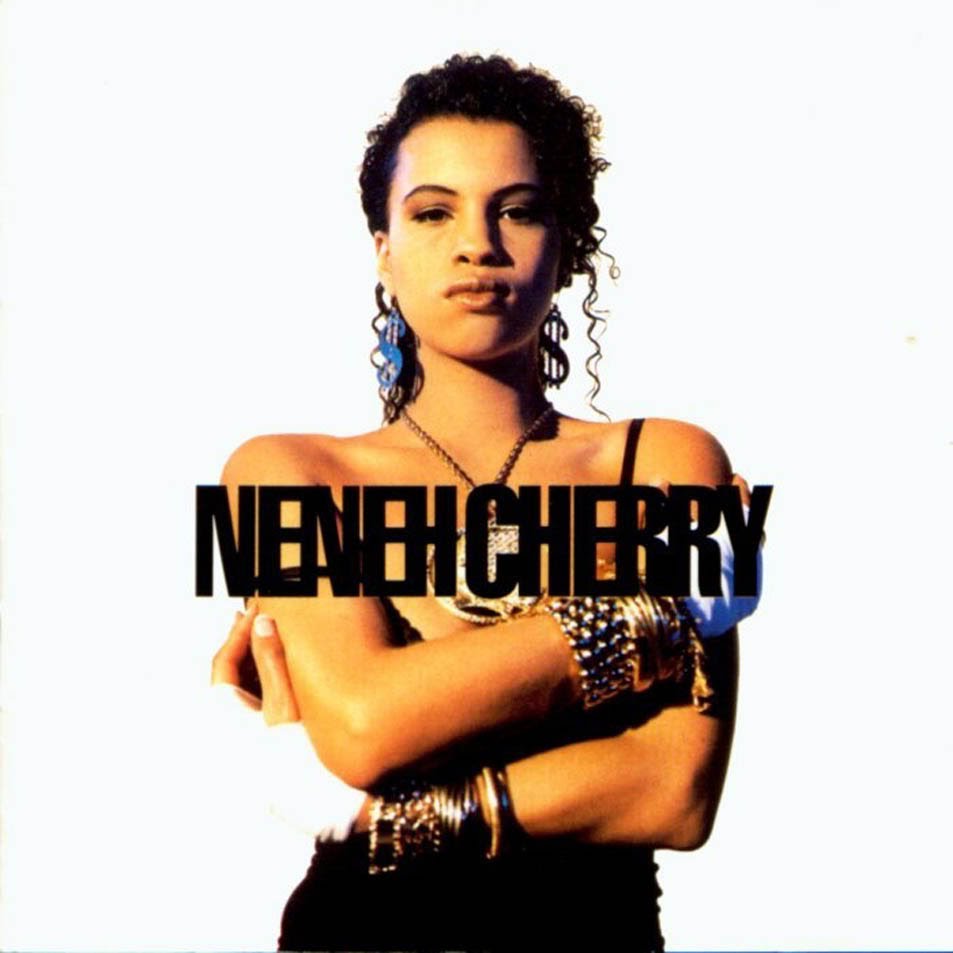
By 1989, 25-year-old Neneh Cherry had already lived multiple vibrant lives. The child of bohemians (her mother, artist Moki Cherry, and her step-father, jazz musician Don Cherry). The 14-year-old high school dropout-turned-downtown-club-kid. The 16-year-old touring the UK with The Slits. The lead singer of post-punk band Rip Rig + Panic. Wife and mother. Divorced single mother, lover, and collaborator. All of these eclectic experiences and identities shape the 10 tracks of Cherry’s debut solo album Raw Like Sushi. Like Cherry, the album is impossible to pin down as one thing; it’s feisty and assertive, using a melting pot of influences from rap to funk to dance pop to convey a young woman’s truths without waiting for permission to do so.
Though the album is nearly 30 years old, it’s one we have found ourselves listening to often in recent months, marveling at its prescience and continued relevancy. Not only do we hear 2018 ring in its girl power-inspiring anthems, assertions of female sexuality, or rebuking of Men Behaving Badly. We hear its decade-defining production reflected in current artists attempting to recreate specific dated sounds of the past — and use this album as a reminder that we need to understand where we have been to know where we are going.
In this episode, we unpack the layers of this album’s lasting sonic influence, discuss and debate the ways its topics remain relevant in today’s cultural and political climate, and salute Neneh Cherry’s prolific unfuckwithable baddiness.
Listen to Raw Like Sushi: iTunes | Spotify | YouTube
Favorite track(s): Buffalo Stance and Inna City Mama (Carly) | Buffalo Stance and Heart (Carrie)
Least favorite track: Love Ghetto (Carly) | Inna City Mamma (Carrie)
Album credits:
Further watching:
Montreux Jazz Festival interview | 2012
Performance + Interview on Arsenio Hall | 1993
“Manchild” live on Top of the Pops | 1989
”Buffalo Stance” live on Top of the Pops | 1988
The Slits – The Man Next Door live | 1981
Further reading:
Neneh Cherry Never Stopped Taking Risks. Now She’s Making Politics Personal | New York Times (October 2018)
Neneh Cherry Is Back and More Fashionable Than Ever | Vogue (August 2018)
Raw Like Sushi Sunday Review | Pitchfork (April 2018)
Neneh Cherry Will Get an Overdue New York Debut | New York Times (January 2015)
Disorienting Eclecticism: Neneh Cherry’s Raw Like Sushi Revisited | The Quietus (May 2014)
Raw Like Sushi review | BBC (2009)
Neneh Cherry: Homestyle | Rolling Stone (February 1993)

Although she had been a presence in the New York’s downtown music scene in the ’60s, Nico didn’t begin writing her own songs until late 1967. Dismayed at the finished product of her first solo album, 1967’s Chelsea Girl, she started to pen her own poems, exploring the truth of her own experiences and putting it to haunting harmonium music. Rejecting the Warhol Factory persona that had given her fame, if not artistic satisfaction, Nico allowed herself to outwardly display her inner darkness: she stopped dying her hair platinum blonde, opting for dark red instead, and took to wearing all black. Though many critics believed this was a character she was adopting to make the album seem more authentic, what they were actually seeing, along with the rest of the world, was a free woman. Here was an artist giving herself the room to turn her own reality into art, no matter how messy, dark, and frightening that reality could be. For a woman in 1968, this wasn’t just an odd rarity; it was trailblazing.
Cited by many as the first goth album, The Marble Index went on to influence a number of artists in the goth rock movement that grew out of late-1970s post-punk, including Siouxsie and the Banshees and Bauhaus. Within her strident, discordant, and atonal sounds, Nico created an album that carved out a place in mainstream commercial music for artists, notably female artists, who express because they have to — even if you’re not sure that you like what you hear.
In this episode, we unpack the album’s influences and lasting influence, both Nico’s triumphs and and her myriad problems, and just what makes this album so difficult for many to listen to.
Listen to The Marble Index: iTunes | Spotify | YouTube
Favorite track(s): Frozen Warnings (Carly) | Frozen Warnings and Ari’s Song (Carrie)
Least favorite track: Facing the Wind (Carly) | Julius Caesar (Memento Hodié) (Carrie)
Album credits:
Further watching:
Nico, 1988 trailer | 2018
Nico, Icon (documentary) | 1995
Unknown New Zealand TV interview | 1985
“Evening Of Light” short film | 1969
Further reading:
Made You Look: On Beauty, Ugliness, and Nico (ed. note: If you only read one of these pieces, wowwowwow make it this one) | The Ringer (August 2018)
7 Musicians Reflect on Nico’s Enduring Influence | New York Times T Magazine (August 2018)
Thirty Years After Her Death, Nico Finally Comes Into Focus | Pitchfork (April 2018)
The influence and tragedy of Nico | i-D (March 2017)
Nico and The Marble Index: “She hated the idea of being beautiful” | Uncut (October 2015)
Nico: Facing The Wind – The Marble Index trilogy | The Quietus (January 2013)
You won’t enjoy Nico’s album, but it’s good for you | The Guardian (October 2008)
The Frozen Borderline: 1968-70 deluxe reissue review | Pitchfork (March 2007)
Your Shadow Is Scared of You: An Attempt Not to Be Frightened By Nico (ed. note: This is some Lester Bangs goodness) | New Wave Rock (1978)
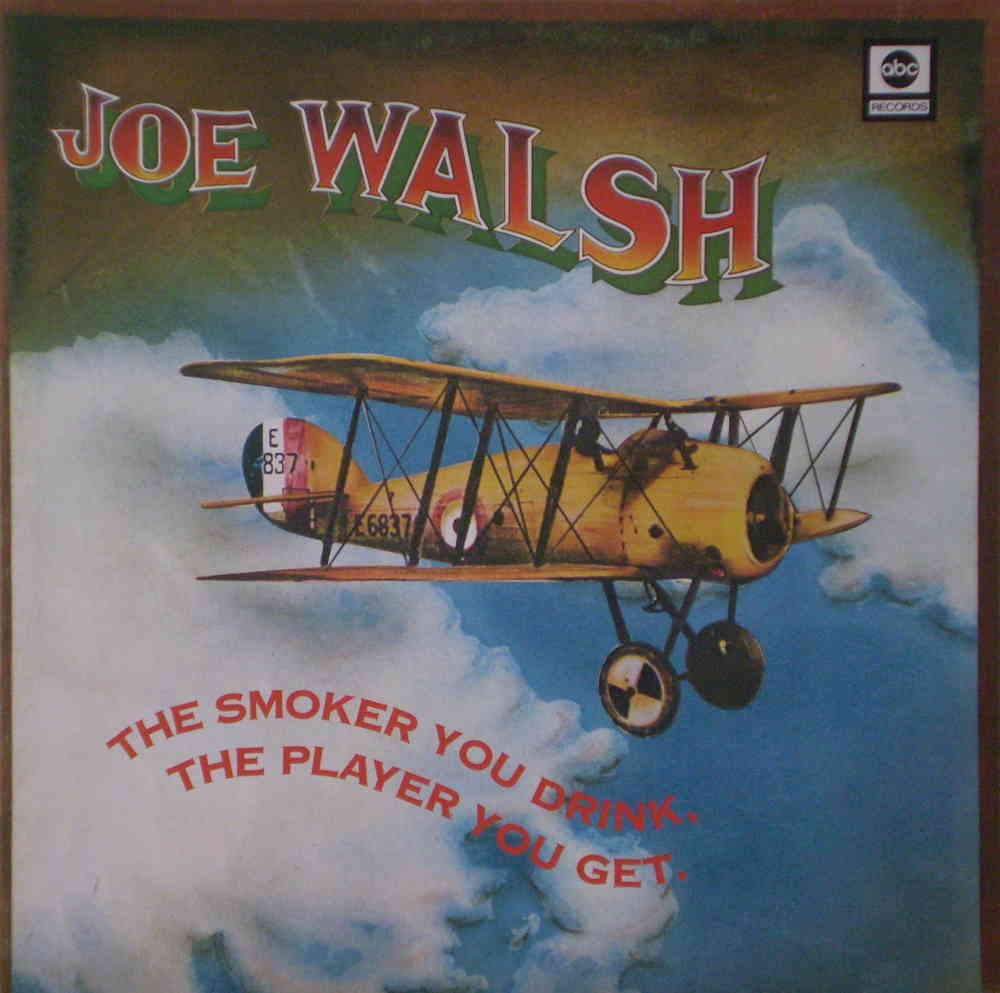
In the 2013 documentary History of the Eagles, the late Glenn Frey describes his bandmate Joe Walsh as “an interesting bunch of guys.” The statement is meant to be comic relief in the midst of a tale of inner-band squabbling, there to set up the story of how the wild, unpredictable Joe Walsh — the one famous for hotel room trashing antics — ushered in a new chapter of the Eagles’ late-70s hedonism. But, if you take a closer look, the description rings true for his musical sensibilities, as well.
Few places can it apply more aptly than 1973’s The Smoker You Drink, the Player You Get, Walsh’s second solo album in collaboration with his band Barnstorm. Though the album would come to be remembered mostly for its lasting arena rock hit “Rocky Mountain Way,” Walsh explores all of his musical personalities, from the dad rock shredder to the softer, more introspective, singer-songwriter to the psychedelic-influenced long-winded jammer. In this episode, we dig through the varied influences Walsh pulls from, discuss Barnstorm members’ individual contributions, unpack the multitudes Joe Walsh contains, and more.
Listen to The Smoker You Drink, The Player You Get: Spotify *
*at this time, The Smoker You Drink, The Player You Get is not available in the US on iTunes, nor is it in full on YouTube.
Favorite track(s): Rocky Mountain Way and Dreams (Carly) | Rocky Mountain Way (Carrie)
Least favorite track: Midnight Moodies (Carly) | Wolf (Carrie)
Album credits:
Further watching:
“Meadows” live | 2017
Joe Walsh survived some serious good times as a young rocker (Stephen Colbert interview) | 2017
Joe Walsh’s apology to millennials / “In The City” live
NAMM Q&A | 2016
Joe Walsh Les Paul Set-Up (ed note: ohmygod this is just delightful) | 2015
60 Minutes Australia interview | 2014
Joe Walsh on Letterman talking about an earthquake (ed note: oh my god) | 1987
“Rocky Mountain Way” live with the Eagles | 1977
Further reading:
45 Years Ago: Joe Walsh Barnstorms Through ‘The Smoker You Drink…’ | Ultimate Classic Rock (January 2018)
The Tao of Joe Walsh | The Paris Review (September 2013)
Joe Walsh Discusses His Career, Gear, and New Album | Guitar World (June 2012)
Joe Walsh, Child of the Silent Majority: Ex-James Gangster Tends His Garden (ed note: this is vintage Cameron Crowe goodness) | February 1975

The Slits now-iconic 1979 debut Cut is an unusual, but delightful, melting pot of sounds: strains of UK punk mix with Jamaican reggae, girlish chants dance with abrasive DIY noise. Slipping between the grooves and finding a home within the mix — perhaps most indecipherably, or even curiously, to the casual listener — is the influence of the early-60s pop standards of Dionne Warwick and Burt Bacharach.
Growing up in post-war Britain in the 1960s, Slits guitarist Viv Albertine heard plenty of Warwick’s hits while listening to pop radio. Later, as a scrappy young woman running around London with next to no money and not much to do in the early-to-mid ‘70s, she came across a compilation album — Dionne Warwick’s Golden Hits, Part One — in a used record shop with her bandmates. It became not just an album that they spent countless hours listening to together, playing it front-to-back over and over again, but one they — particularly Viv and lead singer Ari Up — would study, dissecting songs to their individual parts and taking note of the details, attempting to learn how to emulate Warwick and Bacharach in their own unique way.
For the past 40 years, the Slits have served as touchstones for female musicians, often cited for blazing a necessary trail for the coming riot grrrl movement and beyond. Today, we have the privilege of being able to look to Viv Albertine, and the Slits as a whole, for inspiration and empowerment, and are finally beginning to see their important role in history recognized in more mainstream circles. But in their formative years, female role models, particularly musicians, were much harder to come by; Dionne Warwick was one of them.
In this very special episode, we are so pleased to discuss Dionne Warwick’s Golden Hits, Part One with Viv Albertine herself. Join us for a wide-ranging conversation that touches upon Warwick, Bacharach, and Hal David’s influence on the Slits’ music, as well as their own lives as young women in late-70s and early-80s London, the importance of representation, and so much more.
Listen to Dionne Warwick’s Golden Hits, Part One: Spotify | YouTube
Listen to the Slits’ Cut: iTunes | Spotify | YouTube
Subscribe on iTunes
(and while you’re there, rate and review us in the iTunes store)
Read the full transcript of our interview with Viv Albertine here
First and foremost: We’ve said this a million times, but we truly cannot recommend Viv’s books more or praise them highly enough. Both have had a tremendous impact on us, and we have yet to meet anyone who has read either and cannot say the same.
Support your local small bookstore or check them out here:
To Throw Away Unopened | 2018
Clothes, Clothes, Clothes. Music, Music, Music. Boys, Boys, Boys. | 2014
Follow our master playlist on Spotify to hear every song we discussed today
Follow Viv Albertine on Facebook and Twitter
Follow ’77 Music Club on Facebook and Twitter or shoot us an email if you have thoughts
Further watching:
Here to be Heard: The Story of The Slits documentary trailer | 2017
Viv Albertine in conversation at British Library | 2016
The Culture Show: Girls Will Be Girls (BBC women in punk documentary) | 2014
“Typical Girls” music video | 1979
The Slits live performance and interview | 1970s; specific year unknown
Dionne Warwick and Burt Bacharach: Live at the Rainbow Room | 1996
Burt Bacharach… This Is Now (BBC documentary) | 1996
“Walk On By” live | 1965
“Don’t Make Me Over” live | 1963
Further reading:
On Viv and the Slits
New Doc on The Slits Questions Why These Pioneering Punks Have Been Overlooked | Paper (May 2018)
Viv Albertine Has Used Her Rage to Write Herself into Punk History | Noisey (April 2018)
The Slits Are Refusing to be Written Out of Music History | Noisey (October 2017)
The Slits’ Viv Albertine Defaces Male-Focused Punk Exhibition | Pitchfork (July 2016) ed note: HYFR, BAMF move.
How we made Cut | The Guardian (June 2013)
Like Choosing a Lover: Viv Albertine’s Favorite Albums | The Quietus (April 2013)
Girls Unconditional: The story of the Slits, told exclusively by the Slits | Loud and Quiet (July 2009)
Cut re-release album review | Pitchfork (February 2005)
On Dionne Warwick, Burt Bacharach, and Hal David
Anyone Who Had a Heart: My Life and Music (Burt Bacharach’s memoir) | 2014
My Life, as I See It (Dionne Warwick’s memoir) | 2010
50 Essential Albums of 1967: Dionne Warwick’s Golden Hits, Part 1 | Rolling Stone (September 2017)
Burt Bacharach interview: what was it all about? | The Telegraph (June 2013)
Dionne Warwick: ‘I refused a couple of Bacharach and David songs’ | The Guardian (November 2012)
Dionne Warwick sings Hal David’s last lyrics | CNN (September 2012)
Music And Lyrics: Burt Bacharach and Hal David | NPR (May 2010)
Bacharach and David: Reconciled and Honored | LA Times (May 1993)
Singers: Spreading the Faith | Time (July 1967)
Episode Credits:
Creator and co-host: Carly Jordan
Co-host, editor, producer: Carrie Courogen
Special thanks to: Becky Kraemer and Viv Albertine
The following phone interview conversation took place on June 24, 2018. It has been condensed and edited for clarity.
Carly Jordan: Thank you so much for talking to us for the show. I was really psyched that you wanted to talk about Dionne Warwick.
Viv Albertine: Oh, Dionne Warwick, yes! You don’t think that was a weird one?
CJ: No, I didn’t think that was weird at all.
Carrie Courogen: No.
CJ: We didn’t think that was weird.
CC: We thought it was really interesting.
CJ: Because in your first book, I remember reading about all of the different artists that influenced you when you were coming up in the ‘70s, and none of them were what I thought they were gonna be, and they were so varied and so interesting. So, I was not at all surprised that you chose Dionne Warwick.
VA: Oh, good! [laughs]
CJ: So, when did Dionne Warwick first come to your attention and what about her voice stuck out to you in particular?
VA: Well, I think I first probably heard Dionne Warwick in the ‘60s when I was just listening to chart music, because she had a couple of hits, but the reason I chose the album was because it was one of about four albums we had within the Slits, when we all sort of lived together and shared everything and had to go everywhere together because just the way we dressed enacted — we were being attacked all the time, so we spent so much time together and we just sort of pulled the few things we had. And, back in those days, you know you had a few albums ‘cause they cost so much. We got Dionne Warwick, I think, Golden Hits, Part One, which is her singing the Burt Bacharach – Hal David songs, from the record exchange shop, so, it was a used copy. And we absolutely sort of studied it, you know?

Break out your cargo shorts and New Balances, fire up the grill, and crack open a cold one with the boys. We here at ’77 Music Club are fond proponents of dad rock and are here to soundtrack your day. We rounded up our favorite episodes on the genre below. Tune in and turn it up — but please, for the love of god, don’t dance.
Episode 10: Tom Petty and the Heartbreakers – Tom Petty and the Heartbreakers
Episode 12: Jackson Browne – Running on Empty
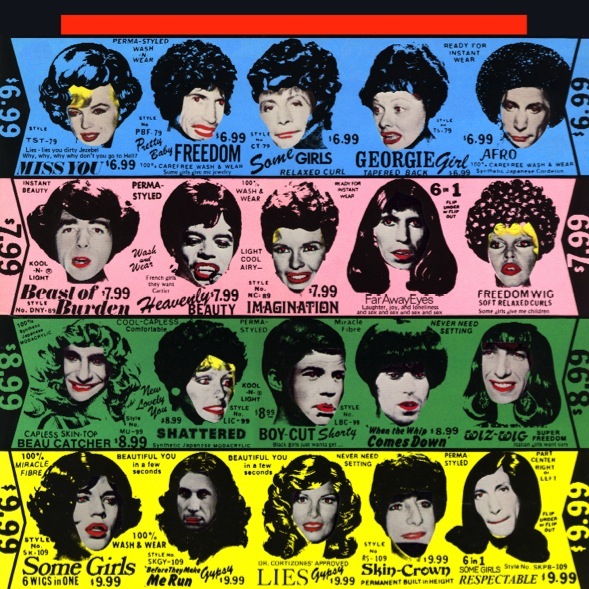 Episode 2.1: Rolling Stones – Some Girls
Episode 2.1: Rolling Stones – Some Girls
Episode 2.3: Van Morrison – Moondance
Episode 2.4: Fleetwood Mac – Tango in the Night

The source of inspiration for her peers and generations of songwriters to come, Bronx-born Laura Nyro has a legacy that has only grown in legend and mysticism since her untimely death in the early ‘90s. Lauded by Carole King, likened to Joni Mitchell, and emulated by some of today’s cleverest singer-songwriters, her style was singular, speaking of and to the female experience in a way that was at once specific and universal, relatable and abstract.
In this episode, we comb through her 1968 album Eli and the Thirteenth Confession, a collection of songs so rife with evocative imagery and sense of self that it brought up many of our own memories, connections to our own experiences as young women in 2018, and of course, musical earworms. For a 50-year-old album recorded and produced by a 20-year-old girl, this prodigious record still remains astonishingly relevant.
Listen to Eli and the Thirteenth Confession: iTunes | Spotify | YouTube
Favorite track(s): Luckie and Timer (Carly) | Eli’s Comin’ and Stoned Soul Picnic (Carrie)
Least favorite track: December’s Boudoir (Carly) | December’s Boudoir (Carrie)
Album credits:
Further watching:
Laura Nyro in the Connecticut Women’s Hall of Fame | 2014
Laura Nyro’s Rock and Roll Hall of Fame induction | 2012
Alice Cooper discusses his love for Laura Nyro (ed note: OH MY GOD) | 2011
“Poverty Train” at the Monterey Pop Festival (with current intro from D.A. Pennebaker, Michelle Phillips, and Lou Adler) | 1967
Further reading:
Laura Nyro remembered: “A musical force of nature” | Uncut (June 2017)
Laura Nyro’s Lasting, Eclectic Musical Legacy | NPR (December 2011)
Eli and the Thirteenth Confession, Maria Desiderio | Rabdrake Blog (October 2009)
An Enigma Wrapped in Songs | The New York Times (October 1997)
Laura Nyro’s legacy of passion | Entertainment Weekly (April 1997)